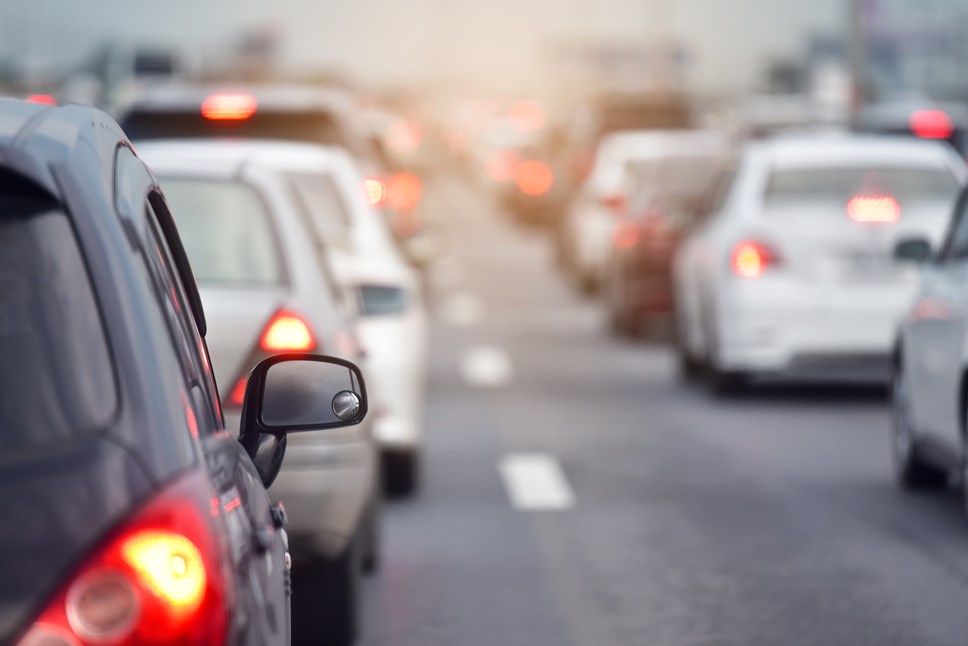
Gaining traction? A quarter of drivers call for dash cams to be compulsory
- 25% of people think dashboard cameras should compulsory in cars;
- Nearly a third (32%) think dash cams should be a standard fitting in all new cars;
- GoCompare warns drivers to look beyond the dash cam discount from insurers and check the policy small print.
New research* from GoCompare Car Insurance reveals that a quarter of UK drivers would be happy to see dash cams in cars made compulsory.
Dash cams – a small video camera attached to a car’s dashboard or windscreen, recording the road ahead - are now commonplace on UK roads. The footage they record can be used as evidence following an accident to help prove which party was at fault.
Just under a third (32%) of people surveyed said that dash cams should be fitted automatically in all new cars in future.
Nearly half (48%) of those taking part in the survey said they would be happy to have a dash cam installed in their car, a minority (8%) said they wouldn’t have one. The main reason given by those who wouldn’t use a dash cam is that they would feel like they were being watched by ‘Big Brother’ insurers (44%) and that the camera would be an invasion of their privacy (39%).
Other concerns voiced included the potential distraction of a video camera while they are driving (30%); nearly a fifth (18%) thought using a dash cam was too much hassle; while 7% were worried the camera would evidence their bad driving.
Matt Oliver, spokesperson for GoCompare Car Insurance commented, “Dashboard cameras give a driver’s eye view of the road ahead, the footage they record can be valuable to insurers, police and the courts as evidence following an accident. In addition to capturing images, many cameras use GPS to record speed and location.
“Insurers are increasingly aware of the benefits of dash cams with several offering a discount to drivers who use them. Unlike telematics policies, insurers don’t use dash cams to monitor overall driving performance but, footage captured showing how a crash occurred could be useful evidence following an accident. Clear evidence from a dash cam can benefit both the insurer and the policyholder by helping to speed-up claims and deliver a fair outcome. For example, by making it possible to determine the ‘at fault’ driver in an accident, camera footage may help to reduce the number of knock-for-knock settlements whereby each insurer pays its own policyholders regardless of liability, which could help drivers protect their no-claims bonus.”
Matt Oliver concluded, “Insurers offer premium discounts based on factors which they believe will lower their claims costs. Currently, only a small number of mainstream insurers offer discounts of around 10% to 20% but as they become more mainstream, we could see more savings and more insurers offering discounts.
“Insurers use a large number of different factors when calculating insurance premiums, so it always pays to shop around for insurance rather than just focusing on one factor like a discount. Also, a dash cam discount will come with terms and conditions which govern its use. For instance, a discount may be dependent on a particular brand of camera being fitted. It’s also worth remembering that if you make a claim and don’t have dashcam footage to support it, your insurer may require you to repay any discount that you may have had, and potentially invalidate your policy.”
For more information on dashcams visit: https://www.gocompare.com/car-insurance/dashboard-cameras/
-Ends-
For further information please contact:
Anders Nilsson / Martyn John / Louisa Marsden at GoCompare on 01633 654 054 / 01633 654 725 / 01633 655 132
Gordon, Jason or Liz at MAW Communications on 01603 505 845
Keep up-to-date with GoCompare on Twitter; @GoCompare
Notes to editors
*On the 14 August 2018, Bilendi conducted an online survey among 2,006 randomly selected British adults who are Maximiles UK panellists. The margin of error-which measures sampling variability-is +/- 2.2%. The results have been statistically weighted according to the most current education, age, gender and regional data to ensure samples representative of the entire adult population of United Kingdom. Discrepancies in or between totals are due to rounding.
About GoCompare
GoCompare is a comparison website that enables people to compare the costs and features of a wide variety of insurance policies, financial products and energy tariffs.
GoCompare does not charge people to use its services, and it does not accept advertising or sponsored listings, so all product comparisons are unbiased. GoCompare makes its money through fees paid by the providers of products that appear on its various comparison services when a customer buys through the site.
GoCompare does not sell its customers’ data.
When it launched in 2006, it was the first comparison site to focus on displaying policy details rather than just listing prices, with the aim of helping people to make better-informed decisions when buying their insurance. GoCompare has remained dedicated to helping people choose the most appropriate products rather than just the cheapest, and has teamed up with Defaqto, the independent financial researcher, to integrate additional policy information into a number of its insurance comparison services. This allows people to compare up to an extra 30 features of cover.
GoCompare is the only comparison website to be invited to join the British Insurance Brokers’ Association (BIBA) and is authorised and regulated by the Financial Conduct Authority (FCA).
For more information visit www.gocompare.com and www.gocomparegroup.com
